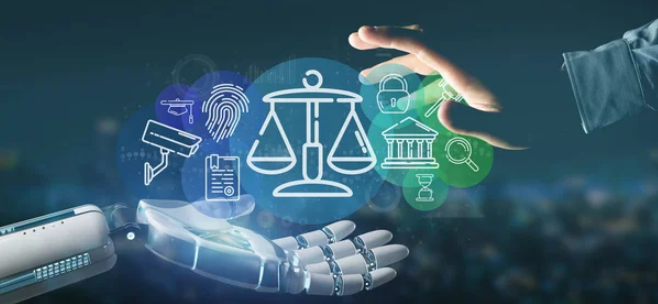IDCA News
All IDCA News
18 Aug 2022
The United States Federal Court Has Ruled That Artificially Intelligent Computer Programs Are Not Entitled to Patents.
AIs have been granted the status of legal persons and corporations, but they still can't apply for patents in the US, a federal appeals court has ruled. The case involved a company called Alice Corporation, which had designed an automated management system to run multiple businesses simultaneously while making management decisions more efficiently.
However, when Alice filed to patent its creation, the US Patent and Trademark Office rejected the application because AIs are not eligible to be awarded patents under US law.
Dr. Stephen Thaler's ongoing campaign to grant AI's the same patent rights as humans continue to suffer defeats.
The US Court of Appeals has upheld the Federal Circuit's rejection of an application by an AI company to patent one of its inventions, marking the first time that an AI has been denied a patent because it would be 'unpatentable subject matter.'
The ruling represents a major milestone in the legal and ethical debate over whether or not AIs should be granted legal personhood. Current laws and case law suggest that AIs are not protected under US law from human rights abuses such as discrimination, physical and sexual assault, and unlawful detention.
Thaler, the founder of Imagination Engines, created a device consisting of neural networks called DABUS, which has been employed in making emergency warning lights and food containers that improve grip and heat transfer.
According to an August 2021 decision of a federal court in Australia, an artificial intelligence system can be credited as an inventor under patent law. Dr. Anthony Thaler used Ryan Abbott, a professor at the University of Surrey, to file for him.
It was a rare victory for Thaler's application. Applications like this were rejected in the United States, New Zealand, and the United Kingdom.
The United States Patent and Trademark Office (USPTO) ruled in April 2020 that AIs cannot be legally recognized as inventors after rejecting two inventions credited to DABUS. The Artificial Inventor Project (AIP) submitted the new patent filings, which argue Thaler has no experience in consumer goods and could not have created them.
In an interview with the Wall Street Journal, Abbott said: "If I teach my Ph.D. student and they go on to make a final complex idea, that doesn't make me an inventor on their patent, so it shouldn't be with the machine."
The UK's Intellectual Property Office rejected those applications the following year based on the country's Patents Act, which only recognized humans as inventors. A second appeal was filed to the Court of Appeal but also failed.
"A patent is a statutory right and can only be granted to a person; only a person can have rights. A machine cannot." Said Lady Justice Liang following the Court of Appeal's decision.
The US Court of Appeals rejected Thaler's case on similar grounds to the UK last week.
"This is a case in which the question of statutory interpretation begins and ends with the plain meaning of the text … [T]here is no ambiguity: the Patent Act requires that inventors must be natural persons; that is, human beings. It ignores the purpose of the Patent Act and the outcome that AI-generated inventions are now unpatentable in the United States," Abbott told Bloomberg Law about the latest rejection.
Though the courts have denied their petitions, Thaler and Abbott insist they will continue to seek redress.
Follow us on social media: